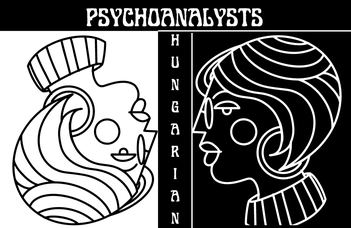The Legacy and the Innovations of Sándor Ferenczi and Other Remarkable Hungarian Psychoanalysts


The course fee for 1-week on-site courses - that includes tuition fee, meals (coffee break and lunch), local transport and the cost of the leisure time programs - is 490 EUR. All applicants are required to pay 90 EUR (out of this 490) as registration fee at registration. The registration fee is non-refundable.
Credits: 4 EC
Our course offers ECTS points, which may be accepted for credit transfer by the participants' home universities. Those who wish to obtain these credits should inquire about the possible transfer at their home institution prior to their enrolment. The International Strategy Office will send a transcript to those who have fulfilled all the necessary course requirements and request one.
Venue: ELTE Faculty of Social Sciences (Room 0.100C – 1/A Pázmány Péter sétány, 1117 Budapest)
APPLICATION:
Please pay the registration fee and fill out this form: https://www.elte.hu/en/psychoanalysts-bsu2024
COURSE DESCRIPTION
The lectures will focus on the most fundamental psychoanalytic concepts and current theoretical constructs. The lecturers will introduce the basic concepts needed to understand a lecture properly, so applicants with limited immersion in psychoanalytical thought will follow the presentations.
Sándor Ferenczi (1873-1933) occupies an essential place in the curriculum of this course. Ferenczi was Sigmund Freud's brilliant disciple, friend, and colleague, as well as a creative, open-minded, and innovative psychoanalyst. Ferenczi and other Hungarian psychoanalysts played an active role in Budapest's cultural life, and Budapest played a vital role in developing the Budapest School of Psychoanalysis. Ferenczi is well-known for his essential role in integrating psychoanalytic ideas into the culture and having links with literature, arts and social science. The course is open to all who are studying or graduated in human or social sciences, psychology, and anyone interested in psychoanalytic ideas, healing processes, and new perspectives of current philosophical, social, artistic, and cultural aspects of psychoanalysis.
Why Attend?
- explore the profound impact of the Budapest School of Psychoanalysis on contemporary thought and practice
- discover what psychoanalysis reveals about art, culture, and society.
- learn about fundamental psychoanalytic concepts and contemporary theoretical constructs
- embark on guided walks through Budapest to explore the cultural and professional connections of Sándor Ferenczi
Join us at the Summer University 2024!
- Psychoanalysis is not just a therapeutic approach; it's a hermeneutic-phenomenological qualitative research method on human subjectivity, society, and culture.
- Embark on a journey into the depths of human consciousness and cultural exploration Psychoanalysis, art, society, and culture converge!
- Delve into the depths of human subjectivity and cultural phenomena as we explore the legacy and innovations of Sándor Ferenczi and other remarkable Hungarian psychoanalysts.
Highlighted Lectures:
The Ferenczi Renaissance and the Budapest School of Psychoanalysis (Lecturer Professor, Dr. Judit Mészáros)
Basic Psychoanalytic Concepts and the Most Influential Schools of Psychoanalysis. (Lecturer: Dóra Lőrik, clinical psychologist and Psychoanalytic psychotherapist in private practice)
Ferenczi, the Social Trauma Thinker: Insights of Sándor Ferenczi into Social Trauma and its Implications for Modern Psychoanalysis (Lecturer: Dr. Noémi Ford, PsyD)
Margaret Mahler and the Separation-Individuation Theory and its Role in Infant and Adult Attachment. (Lecturer: Dr. Noémi Ford, PsyD)
Intrauterine Life and the Pregnant Mother: The Psychological, Cultural, and Ethical Dimensions of Prenatal Bonding Analysis, (Lecturer: Krisztián Indries, clinical psychologist)
"Every night I fly. I really fly" Residues of horror and the psychoanalytic "compression-bandage". Working with survivors of torture., Lecturer: Dr. Laura Tarafas, Psychoanalytic psychotherapist, intercultural clinical psychologist
Psychoanalysis and Creativity: Uncover the psychoanalytic approach to creativity and arts, tracing its evolution from Freud to contemporary theorists, (Lecturer: Dr. Zoltán Kőváry, associate professor)
Amae, a basic concept in the Japanese Psychoanalysis. Dialogue between Doi Takeo and Michael Balint (Lecturer: Krisztián Indries clinical psychologist)
The Beneficial Pain in Historical Traumas. From displesure to Creativit (Lecturer: Dr. Tímea Zsédely, PhD)
Who Should Attend?
This program is open to students, graduates and postgraduates in human or social sciences, psychology, and anyone interested in psychoanalytic ideas, and new perspectives on current philosophical, social, artistic, and cultural aspects of psychoanalysis.
